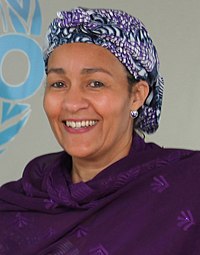The co-Principal Investigator for the Performance Monitoring
and Accountability 2020, Dr. Funmi
OlaOlorun has recommend more training support for
the private health care providers in the provision of family planning in
Nigeria, and particularly in Lagos, the commercial nerve centre of the country, reports NaijaAgroNet.
Speaking to NaijaAgroNet during a media parley on the fourth round survey of Performance, Monitoring
and Accountability 2017 in Lagos, Dr. Olaolorun said that support for more training
for private healthcare providers will improve the provision of injectables, implants among
others for the purpose of effective family planning for the country.
According
to her, support increases supply of Long Acting Methods (LAM), greater choice
and avails provides training and retraining opportunities in order to be
up-standing to their call of duty.
Dr. OlaOlorun who doubles as a Senior Lecturer and Honorary Consultant at College of
Medicine, University of Ibadan - College of Medicine, University of Ibadan disclosed that the latest survey under PMA2020, witnessed in Lagos, more women
obtaining method of choice and would return to providers in the nearest future,
with likelihood of referring a friend.
She stressed
that the survey noted increase in the use of long acting methods, especially
implants, just as stockouts persist, especially in the private hospitals and
clinics.
The PMA2017
cum Lagos-round four survey, she noted was conducted by the Centre for
Research, Evaluation Resources and Development (CRERD) and Bayero University Kano
(BUK).
The project,
she said, was collected data from Anambra, Kaduna, Kano, Lagos, Nasarawa, Rivers
and Taraba States.
With support
from the Federal Ministry of Health, National Population Commission, National
Bureau of Statistics, Lagos State Ministry of Health , Bill & Melinda Gates
Institute for Population and Reproductive Health (Johns Hopkins University) and
was funded by the Bill & Melinda Gates Foundation, in addition to partnership with Pathfinder International.
Remmy Nweke/ED, Ops
... Linking agrobiz, sustainable environs, people & technology











